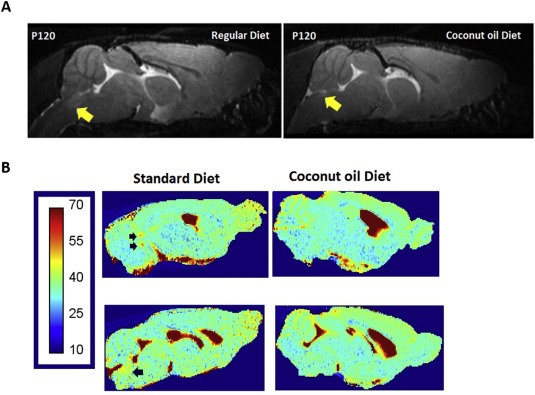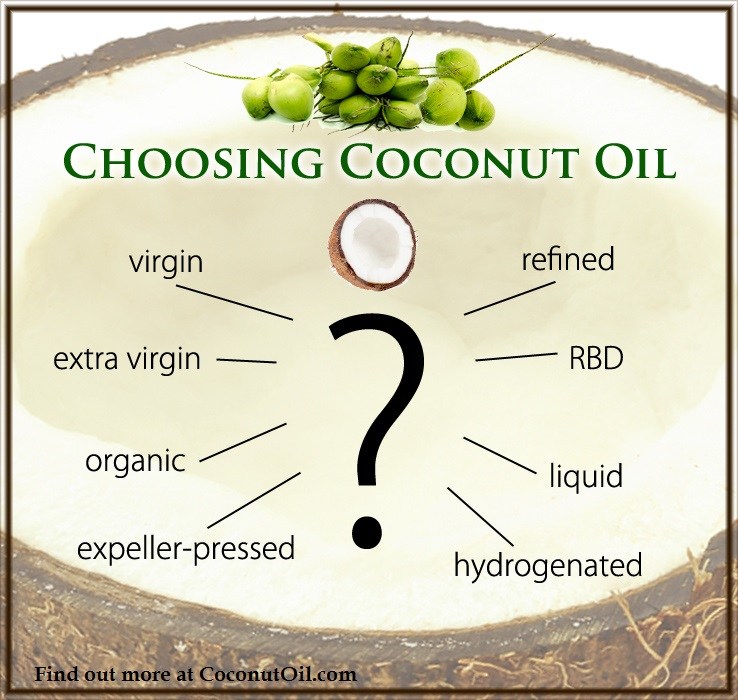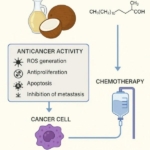by Paul Fassa
Health Impact News
ALS (amyotrophic lateral sclerosis) is a neurodegenerative disease that causes disability and can lead to death. It is considered progressive and incurable.
It is often referred to as Lou Gehrig disease, named after the Yankee baseball star of decades ago whose career was cut short by ALS.
ALS begins with minor muscular control issues then progresses until one is completely disabled, even unable to consume food or breathe.
It can be a slow, miserable death for many who are stricken. ALS diagnoses have been increasing, and the pharmaceutical industry has no cures.
A recent animal study looked into the potential of coconut oil for preventing or reducing ALS symptoms.
Coconut oil has already demonstrated safe efficacy for treating Alzheimer’s disease symptoms, which is also a neurodegenerative disease for which mainstream medicine has no answer.
The Coconut Oil for ALS Animal Study
The study report is called Non-invasive assessment of disease progression and neuroprotective effects of dietary coconut oil supplementation in the ALS SOD1G93A mouse model: A 1H-magnetic resonance spectroscopic study.
The study was performed by KU (Katholieke Universiteit) Leuven scientists in the Dutch-speaking region of Leuven, Belgium.
1H-magnetic resonance spectroscopy is ideal for ALS treatment diagnostics and research.
It is used for many animal and human studies to isolate minute molecular changes in brain and nervous system studies without having to procure tissue and blood samples. Thus, it is non-invasive.
A mouse model is a mouse that has been bred into one that has the genetic and biochemical precursors or attributes of the disease for which it was meant to represent. Mice genomes are similar to human genomes.
Breeding mice to have the necessary genetic dispositions similar to diseased humans is fast because mice have short lifespans, two to three years under normal conditions. (Source)
The mouse model mentioned in this study’s title is one that is most commonly used for ALS and a few other neurodegenerative diseases with in vivo (animal) studies.
Excerpt from the study introduction:
There is considerable evidence to indicate that the ALS pathology arises due to impaired energy metabolism in motor neurons (Dupuis et al., 2011).
Previous studies have shown that a ketogenic diet or caprylic triglyceride halts the impairment of motor function and reduces death of motor neurons in the spinal cord of SOD1G93A mice by restoring energy metabolism through ketone body utilization (Zhao et al., 2006; Zhao et al., 2012).
Excerpt from the study abstract:
[The study results] revealed that the coconut oil supplementation together with the regular diet delayed disease symptoms, enhanced motor performance, and prolonged survival in the SOD1G93A mouse model.
Furthermore, MRS data showed stable metabolic profile at day 120 in the coconut oil diet group compared to the group receiving a standard diet without coconut oil supplementation.
In addition, a positive correlation between survival and the neuronal marker NAA was found. … this is the first study that reports metabolic changes in the brainstem using in vivo MRS and effects of coconut oil supplementation as a prophylactic treatment in SOD1G93A mice.
Study Summary
The type of mice used was bred to develop ALS symptoms as they age within their lifetimes. One set of mice were fed standard mouse chow only. The other mice were fed the same standard mouse chow, but they were supplemented with virgin coconut oil.
Both sets of mice were subjected to MRS (magnetic resonance spectroscopy) at 70 days and 120 days. The MRS enabled them to observe specific biochemical markers at molecular levels, known as metabolites, in this case, neurometabolites. Their measurements would indicate metabolite alterations.
The researchers focused on metabolic alterations specific to ALS.
One of the major metabolites NAA (N-acetylaspartate), has been observed as an integral part of neuron loss, which is a major factor of onset ALS when it is diminished from the central nervous system.
NAA reduction was greater in the non-coconut oil fed group of rats, indicating those on coconut oil were experiencing less neurodegeneration and neuronal destruction.
Another metabolite alteration observed and measured at the 70 and 120-day intervals was GABA (gamma-aminobutyric acid).
Additionally, alterations in creatine, glutamate, taurine, as well as inflammatory markers in the nervous system were studied via MRS and recorded.
These alterations were compared to external physical measurements and observations with smaller intervals of the study’s time, such as body weight, appearance, and the results of controlled activities to exhibit muscular control and strength.
The choice was made for virgin coconut oil because it’s very high in medium chain triglycerides that are easily converted by the liver to produce energy in the form of ketones.
From the study’s discussion on why it was chosen for this ALS study:
In normal circumstances, glucose acts as the main energy source for the cells. However, alternative energy sources such as ketone bodies or TCA cycle [defined below] intermediates can potentially bypass the rate limiting steps associated with impaired neuronal glucose metabolism and restore mitochondrial adenosine triphosphate. (Emphasis added)
The TCA cycle is also known as the Krebbs cycle, discovered by Hans Adolf Krebs, which is the primary metabolic pathway through which aerobic energy, measured in molecules of ATP (adenosine triphosphate), which are released from dietary carbohydrates, proteins, and fats. (Source)
Ketones are able to break through restrictive conditions, such as insulin resistance in the brain, which impede the TCA or Krebs cycle, and bypass those barriers to restore energy to central nervous system neurons.
The study’s conclusion is summed up with this one highlight line from their report:
Ketone body rich diet delayed the onset of symptoms, improved motor performance, extended survival and maintained normal metabolite profiles.
The full study text can be viewed in its entirety here.
Commentary: More Studies on Coconut Oil for Neurodegenerative Diseases Needed
The results of this study along with several others referenced by the Belgium researchers need to be more publicly promoted.
It’s interesting that so many of the promising coconut oil studies, especially those dealing with neurodegenerative diseases, are conducted outside English speaking, Big Pharma-dominated nations.
These relatively inexpensive studies are nowhere near what the pharmaceutical industry shells out for their patented synthetic drugs.
But they threaten the pharmaceutical industry’s bottom line if they are publicized the way mainstream press releases are in English speaking nations when they announce pharmaceutical industry “breakthroughs” that do little more than make millions for Big Pharma.
Ensuring that doesn’t happen is all part of the pharmaceutical industry’s business model. And they have the FDA, mainstream media, controlled MDs, and the health insurance industry to support it.
The baby-boomer era generations are aging in large numbers, and those aging are most prone to neurodegenerative diseases such as ALS and Alzheimer’s disease.
Virgin coconut oil is safe and carries even more nutritional benefits in addition to neurological protections.
Everyone can have access to coconut oil’s health benefits. Those with neurodegenerative diseases and family care-takers should all know about dietary coconut oil’s nutritional and medicinal benefits, which the pharmaceutical industry has failed to duplicate safely with their synthetic drugs.
More articles on coconut oil for neurodegenerative disease can be accessed here.
Virgin Coconut Oil:
How it has changed people’s lives and how it can change yours!
Includes 85 recipes – Free shipping available!







 HHS Secretary Kennedy Breaks His Promise: "War on Saturated Fat" Kept in Tact with New U.S. Dietary Guidelines
HHS Secretary Kennedy Breaks His Promise: "War on Saturated Fat" Kept in Tact with New U.S. Dietary Guidelines Research Continues to Show Virgin Coconut Oil's Effectiveness in Treating Cancer
Research Continues to Show Virgin Coconut Oil's Effectiveness in Treating Cancer Coconut Oil Continues to Benefit Alzheimer's Patients over Drugs as Studies Continue for Neurological Benefits
Coconut Oil Continues to Benefit Alzheimer's Patients over Drugs as Studies Continue for Neurological Benefits How the Simple High-Fat Low-Carb Ketogenic Diet Continues to Change People's Lives
How the Simple High-Fat Low-Carb Ketogenic Diet Continues to Change People's Lives New Studies Continue to Show that Coconut Oil is the Best Oil for Treating Skin Conditions and Maintaining Healthy Skin and Teeth
New Studies Continue to Show that Coconut Oil is the Best Oil for Treating Skin Conditions and Maintaining Healthy Skin and Teeth
Leave a Reply